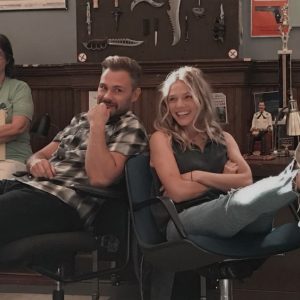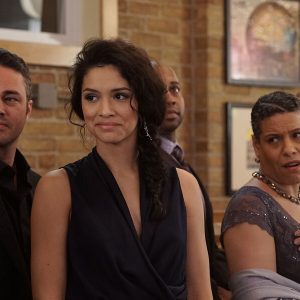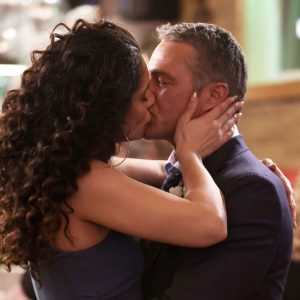There was a time when Hank Voight still believed in redemption. That time has long passed.
Over the years, Chicago P.D. has painted a portrait of a man not corrupted by the system—but redefined by his own grief. While many see Voight as the rule-breaking, back-alley enforcer of the law, those who’ve followed him closely know the deeper truth: Voight is a wound that never healed. And the 8 episodes listed below aren’t just chapters in a cop’s career. They’re the brutal milestones that carved a monster from a man.
It all began with “Stepping Stone.” This wasn’t just the origin of the Intelligence Unit—it was the origin of Voight’s reckoning. Introduced as a hard-nosed enforcer with ties to corruption, many expected him to be the villain of the series. But there was always something more in his eyes. A weariness. A warning. The badge he wore was already heavy with compromise.
Then came “Shouldn’t Have Been Alone.” Nadia’s death wasn’t just another case gone wrong. Voight took her in, protected her from the streets, gave her hope. And when she was killed, Voight’s vengeance wasn’t theatrical—it was surgical. From that moment, every criminal he encountered was met not with justice, but with retribution. It wasn’t about the law anymore. It was personal.

Nothing, however, could prepare him—or the audience—for “Life Is Fluid.” The murder of his son, Justin, shattered the last piece of light left in him. There was no attempt at legal closure. Voight hunted the killer, buried the body, and walked away with nothing left inside. It was a turning point so dark that even his team began to fear him—not as a man, but as a force of nature.
In “Homecoming,” when Alvin Olinsky died taking the fall for Voight, something colder than grief took root. Olinsky wasn’t just a partner. He was family. And his death wasn’t just tragic—it was Voight’s doing. The guilt never left, but he buried it under layers of silence and violence. When he sat by that grave, he didn’t cry. He couldn’t. The tears had dried years ago.
But Voight’s brand of protection has always walked a tightrope. In “Reckoning,” he tried to save Antonio Dawson from scandal, addiction, and disgrace. But every attempt only pushed Antonio further away. Loyalty has always been Voight’s guiding principle—but here, it started to fracture. He wasn’t just protecting his team anymore—he was isolating them.
“Mercy” offered the rarest thing: a glimpse of self-awareness. Another grieving father kills a criminal in a fit of rage, and for a split second, Voight hesitates. He sees himself reflected in that father—bloody hands, broken spirit. And for once, he doesn’t deliver a cover-up or a punishment. He walks away. In that silence lies the one thing Voight never admits: regret.
The pain deepens in “You and Me,” when Jay Halstead, the one man Voight believed could carry his legacy, finally walks away. Not out of rebellion—but disappointment. Voight doesn’t beg him to stay. He watches. Quietly. Because deep down, he knows that he’s the reason why good men lose their way.
And now, in “I Can Let You Go,” the most recent twist feels like the final blow. Voight is no longer feared like before. His unit is falling apart. His enemies don’t even need to strike—he’s doing it to himself. Isolation, paranoia, the endless weight of every death he’s caused or allowed—it’s finally catching up to him. And no amount of fists or threats can keep it at bay.
These 8 episodes don’t just define Hank Voight—they explain him. He is not a hero. He’s not a villain. He is what happens when grief festers instead of heals. When justice is twisted into vengeance. When the pain is louder than the truth.
Chicago P.D. isn’t a police procedural. It’s the slow, brutal unraveling of a man who once tried to protect the world—and ended up destroying himself.
So now the question lingers:
Has Voight finally become the very monster he once vowed to hunt?





